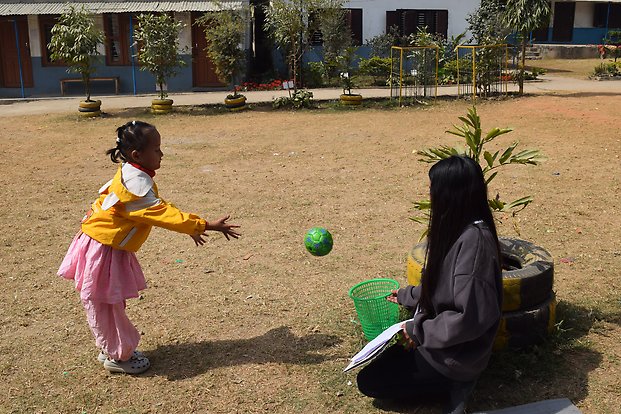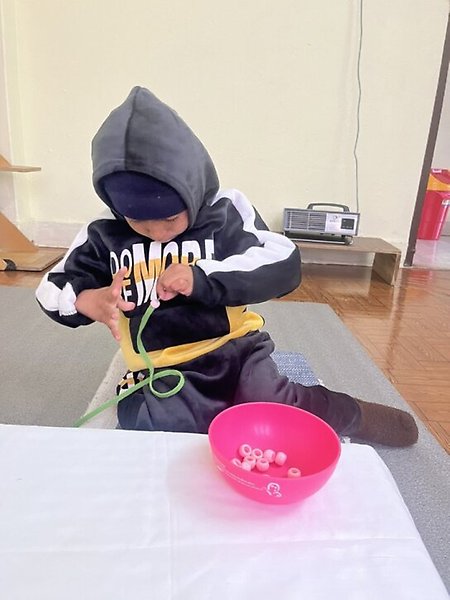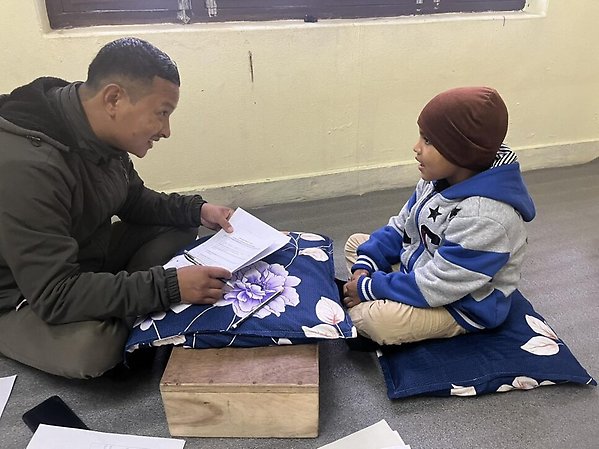Familjecentrerad intervention och epidemiologi för utvecklingsförseningar och funktionshinder i Kaski, Nepal (FINE-DDD)

Det finns en brist på information om barn med utvecklingsförseningar och funktionshinder i låginkomstmiljöer, vilket resulterar i att dessa barn inte inkluderas i hälsoplanering och interventioner. Det finns också ett behov av att identifiera riskfaktorer i olika miljöer, samt kontextanpassa interventioner. Detta forskningsprojekt syftar till att fastställa prevalensen av utvecklingsförseningar och funktionshinder för barn i Kaski-distriktet i Nepal som hade komplikationer runt födseln, samt att utveckla och utvärdera en intervention för att öka delaktigheten för barnen och livskvaliteten för deras vårdnadshavare. Den familjecentrerade interventionen kommer att samskapas med familjer till barn med DDD och samhällsaktörer så som hälso- och sjukvårdspersonal, lärare och lokala ledare, bland andra. Projektet är ett samarbete mellan Uppsala universitet och den icke-statliga organisationen Golden Community i Pokhara, Nepal.
Grundinformation
- Period: 2023-01-01 – 2025-12-31
- Finansiär: Vetenskapsrådet
- Bidragstyp: Projektbidrag
The current situation
Children with developmental delays and disabilities (DDD) living in low- and middle-income settings, have low access to general health services, education, and specialized services. This leads to poor health and participation outcomes for the children, while families are often being left alone to care for their child, which creates high risk for stress, isolation, depression and reduced quality of life. Children with DDD have for long been a neglected research field, resulting in down-prioritizing of service provision.
FINE-DDD
FINE-DDD is a collaborative research project between Uppsala University and Golden community in Nepal. Golden community is non-profit company that provides technical and managerial assistance for large-scale qualitative and qualitative research projects. We will also work closely with health care providers in Nepal, including the Pokhara Academy of Health Sciences (PoAHS) hospital and therapist and rehabilitation providers in the area.

Our aim
The aim of FINE-DDD is twofold: first, to determine the risk of DDD for children in Nepal who experienced complications around the time of birth, and second, to develop and evaluate the feasibility of a family-centred intervention to support these children and their caregivers.
Step 1: Figuring out the numbers
We want to know the risk of developing DDD if you are born with complications around the time of birth. To establish this, we will do developmental assessments of children when they are 3-6 years old. All the children in this project were born at the hospital in Pokhara, but only half of the children had complications around the time of birth.
Step 2: Creating new solutions
To be able to address the need of children with DDD and their families, we want to develop solutions that are specially designed for the context in Nepal. Therefore, we will create and evaluate a family-centred intervention aimed at improving participation for children with DDD and enhancing the quality of life for their caregivers. The intervention development will involve creating a draft intervention and evaluating its feasibility through participatory methods such as in-depth interviews, piloting and workshops.
Impact
The findings could inform national programs and healthcare services, particularly in identifying risk factors for DDD and developing targeted interventions. Ultimately, the goal is to improve outcomes for children with DDD and enhance caregiver well-being through tailored interventions and support services.

Samarbetsparter
- Golden community Nepal
- Angelina Kaooza-Mwesige Makere University Kampala, Uganda
- Stefan Swartling Peterson Uppsala Universitet and Karolinska Institutet
